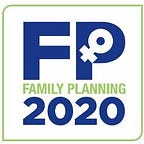Understanding ECHO: What Comes Next?
By Tamar Abrams, Communications Director, FP2020
After years of preparation, the results of the rigorous ECHO study were released on June 13, sharing a mix of good and sobering news. On the very positive side — there was no substantial difference in risk of HIV acquisition among women using DMPA-IM, the LNG implant, or the copper IUD. These methods are safe an highly effective, even in areas where HIV prevalence is high. That’s the good news.
The wake-up call: There was high HIV incidence in women using all three methods, even though they received counseling, condoms, STI treatment and — once it became a standard in care — referrals to PrEP. Rates of new HIV infections in women in the ECHO trial were roughly the same across the three methods; there was no method that was associated with higher or lower HIV incidence compared to the other two.
So what does this mean to the family planning community, and what impact should it have as we move toward 2030? Clearly there is an urgent need to do more to address the unacceptably high HIV incidence among women and girls, particularly in Sub-Saharan Africa. And — quite clearly — there are still far too many women and girls who do not have access to modern contraceptives.
ECHO was a catalyst for bringing together the family planning and HIV communities to plan for the release of results. Now we need to use that momentum to push for even greater integration of services to women. Few women have the time or resources to seek contraceptives in one appointment and then return either to the same clinic or go somewhere else at another time for HIV prevention or treatment. There is no excuse for not providing both at the same time. Women and girls must be able to make informed decisions about their health, including around contraception and HIV prevention or treatment services, in a way that works for them.
Additionally, we must work harder to ensure women and girls have a true choice in their contraceptive methods. We can’t continue to say they’re making a decision to choose what method works best for them and their families when there are only one or two methods available to them. As a global health community, we can and must do better.
As we reach the milestone of 2020, we must use the lessons of ECHO to redouble our efforts to support women’s agency and autonomy as they assess their individual risk for both unintended pregnancy and HIV. In designing programs and policies, we must engage civil society — including women- and youth-led organizations and LGBTQI-focused groups — because they have a cultural, political, and social understanding of their own communities. As we develop our vision for this partnership beyond 2020, we also commit to addressing the gendered socio-economic factors and structural barriers which undermine women’s and girls’ human and sexual and reproductive health and rights, including HIV outcomes. And we must provide robust and flexible funding for both family planning and HIV/AIDS programs and promote policies that support integrated programming. At FP2020, we commit to those efforts, including through our grant making program, the Rapid Response Mechanism.
These are just the starting points for honoring the women who gave their time and bodies to the ECHO clinical trial. The results must drive all of us, from donors to governments to advocates, to change how we do things. The next ten years must see us striving to work harder, more efficiently, and in a way that puts women and girls at the center. It’s the least we can do.
